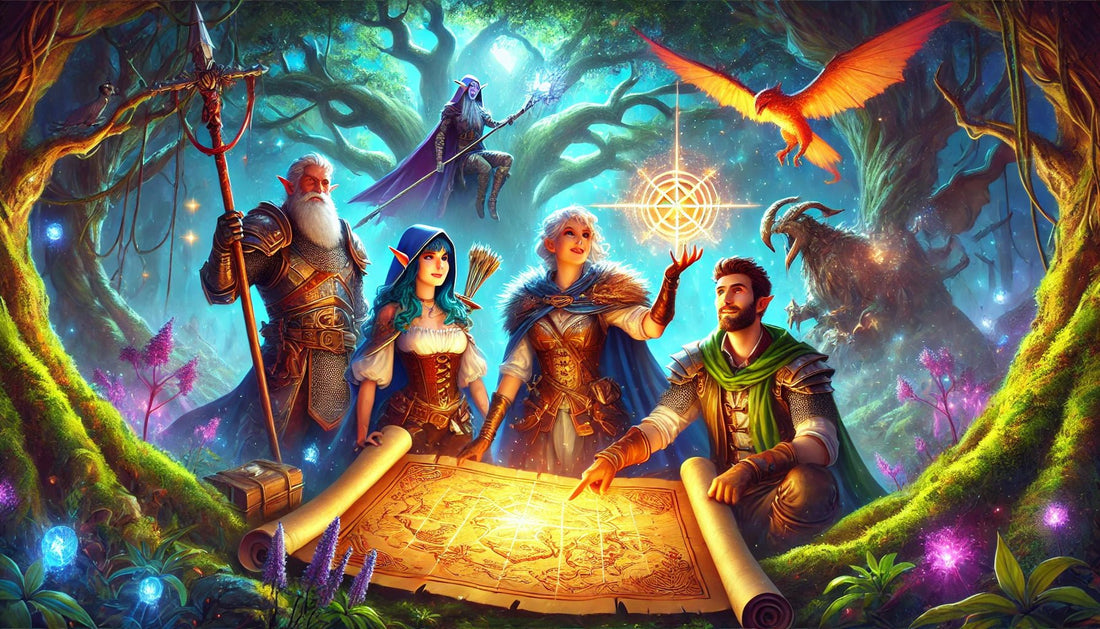
The Enchanted Mind: Unraveling the Psychology of Role-Playing Games
Share
Chapter 1: The Call of Adventure
In a world where reality often feels constrained, role-playing games (RPGs) serve as the gateway to endless realms of possibility. The moment a player dons the cloak of their chosen character, they step into a narrative brimming with intrigue, challenge, and discovery. But what is it about these fantastical adventures that captivates the human psyche so profoundly?
Chapter 2: The Power of Imagination
At the heart of RPGs lies imagination, the bedrock upon which entire universes are built. When we engage in these games, we unlock a part of our mind that revels in creativity. This act of creation not only enriches our gaming experience but also fosters cognitive flexibility. By imagining ourselves as heroes, villains, or mythical creatures, we stretch the boundaries of our reality, enhancing our problem-solving skills and emotional resilience.
Chapter 3: Identity and Transformation
One of the most enchanting aspects of RPGs is the ability to assume new identities. Players often choose avatars that reflect aspects of their personalities or embody traits they aspire to possess. This transformation allows for a unique form of self-expression and exploration. By navigating the world through another's eyes, players gain insight into different perspectives, fostering empathy and self-awareness.
Chapter 4: The Social Fabric
Role-playing games are not solitary endeavors. Whether in tabletop settings or massive multiplayer online worlds, these games foster a sense of community and belonging. Players collaborate, strategize, and share stories, creating bonds that often transcend the game itself. This social interaction is crucial for mental health, providing a supportive network that combats feelings of loneliness and isolation.
Chapter 5: Mastery and Achievement
RPGs are structured around quests, challenges, and the pursuit of goals. The sense of accomplishment that comes from completing a difficult mission or leveling up a character is immensely gratifying. This feeling of mastery and achievement boosts self-esteem and provides a sense of purpose, mirroring the intrinsic motivation that drives us in real life.
Chapter 6: Escapism and Mental Health
Life can be overwhelming, and RPGs offer a form of escapism that is both immersive and therapeutic. Stepping into a world where problems are solvable and heroes prevail provides a much-needed respite from everyday stress. This escapism is not about avoiding reality but rather about recharging one's mental batteries, emerging with renewed strength to face real-world challenges.
Chapter 7: Cognitive and Emotional Benefits
Engaging in RPGs is not just fun; it also enhances cognitive and emotional well-being. Studies have shown that these games improve memory, strategic thinking, and emotional regulation. By navigating complex storylines and making impactful decisions, players sharpen their minds and gain better control over their emotions.
Chapter 8: Storytelling and Narrative Immersion
At their core, RPGs are about storytelling. Players become part of an evolving narrative, where their choices shape the outcome. This narrative immersion allows players to experience stories in a deeply personal way, making the lessons learned and emotions felt all the more poignant. Through these stories, players explore themes of heroism, sacrifice, and redemption, enriching their understanding of the human condition.
Chapter 9: The Alchemy of Choice and Consequence
Every decision in an RPG has consequences, teaching players the importance of choice and accountability. This aspect of gameplay mirrors real-life situations, where actions lead to outcomes that must be navigated. By understanding the weight of their decisions in the game, players develop a greater appreciation for the complexity of life outside the game.
Chapter 10: The Future of Role-Playing Games
As technology advances, the potential for RPGs to further influence our psychology grows. Virtual reality and augmented reality promise even more immersive experiences, blurring the lines between the game world and reality. These advancements will continue to shape how we perceive and interact with RPGs, pushing the boundaries of our imagination and cognitive abilities.
Conclusion
Role-playing games are more than just a pastime; they are a powerful tool for psychological growth and exploration. By delving into these fantastical worlds, we unlock facets of our mind that remain dormant in everyday life. Whether you're a seasoned adventurer or a curious newcomer, the journey through the realms of RPGs promises to be a magical one, filled with self-discovery, camaraderie, and endless possibilities.
So, gather your party, roll the dice, and let the adventure begin. Your mind is the only limit to the worlds you can explore.
